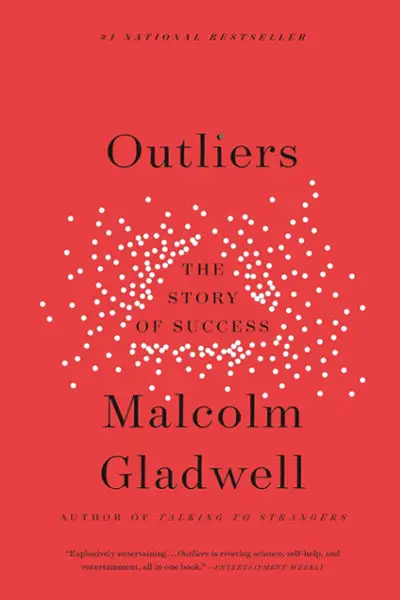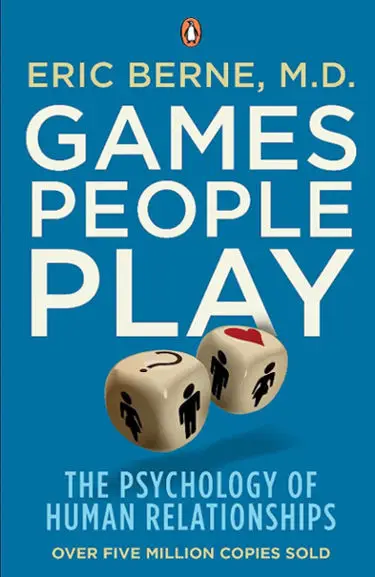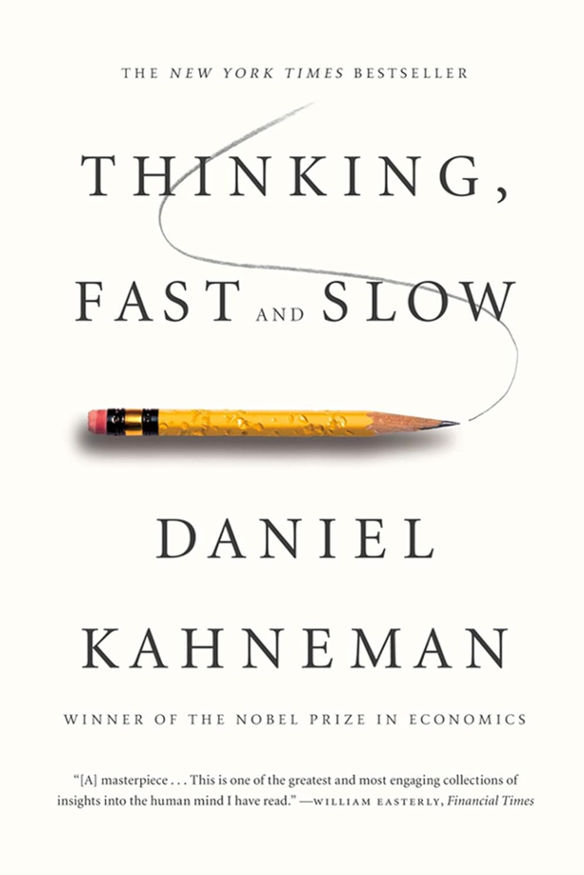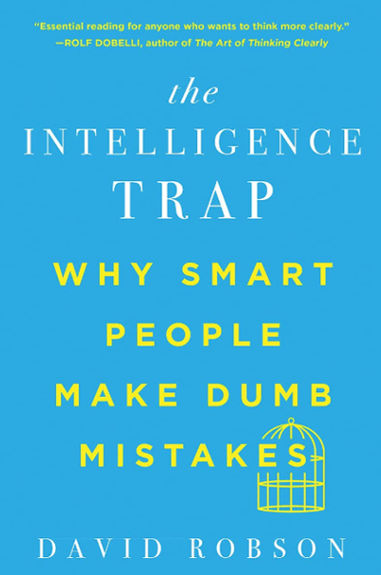Are you wondering why is it important to understand human psychology and behavior? Then you are at the right place. In this article, you will get all your answers and book recommendations related to human psychology.
Why is it important to understand human psychology?
Understanding human psychology is crucial for navigating the intricacies of relationships, communication, and personal development. It allows you to empathize with others, communicate effectively, and resolve conflicts. Knowing how our minds work enhances decision-making, stress management, and emotional intelligence. Whether in leadership, education, or daily interactions, a grasp of psychology enables you to adapt to changing circumstances, foster positive environments, and contribute to personal and societal well-being. Ultimately, it provides valuable insights into human behavior, empowering you to make informed choices and build meaningful connections with those around you.
Books that will help you understand human Psychology and Behaviour
Outliers: The Story Of Success by Malcolm Gladwell
Key Takeaways from Outliers by Malcolm Gladwell
- The 10,000-Hour Rule: Gladwell suggests that it takes approximately 10,000 hours of practice to achieve mastery in any field. Consistent and deliberate practice is a key ingredient for success.
- Cultural Legacy: Cultural background plays a crucial role in shaping an individual’s mindset and success. Understanding cultural influences provides insight into why some groups excel in specific areas.
- The Matthew Effect: The rich get richer, and the poor get poorer. Success builds upon success, creating a snowball effect. Early advantages, even slight ones, can lead to significant disparities over time.
- Birth Month and Success: Gladwell highlights the influence of birth month on success, particularly in sports. Those born earlier in the year may have developmental advantages, contributing to higher achievement levels.
- 10,000-Hour Rule Isn’t Absolute: While the 10,000-hour rule is a useful concept, Gladwell acknowledges that other factors such as innate talent, opportunity, and cultural background also play crucial roles in achieving success.
- Importance of Practical Intelligence: Success often requires more than just academic intelligence. Practical intelligence, the ability to navigate real-world situations effectively, is key to achieving greatness.
- Legacy of Family and Upbringing: Gladwell emphasizes the impact of family background and upbringing on an individual’s success. Supportive and nurturing environments can provide a foundation for achieving extraordinary goals.
- Understanding the Power Distance Index (PDI): PDI, a cultural dimension, influences how individuals respond to authority and hierarchy. It contributes to the dynamics of success and achievement within different societies.
- Hard Work and Opportunity: While innate talent is valuable, seizing opportunities and putting in hard work is equally, if not more, crucial. Success often comes to those who are prepared and willing to work diligently.
- Reinterpreting Success: “Outliers” challenges traditional views of success by emphasizing the role of external factors. It encourages readers to reconsider the narrative of individual triumph and recognize the broader context that shapes achievement.
Games People Play by Eric Berne, M.D.
Key Takeaways from Games People Play by Eric Berne, M.D.
- Transactional Analysis (TA): Berne introduces TA as a method to understand and analyze human interactions. It examines the ego states (Parent, Adult, Child) involved in communication.
- Games: Berne defines “games” as recurring, predictable patterns of behavior that people engage in during social interactions. These games often serve hidden psychological purposes.
- Scripts: Individuals develop life scripts based on early experiences and influences. These scripts shape behavior and responses to various situations throughout life.
- Transactional Stimulus: Berne identifies transactional stimulus as the communication or action that prompts a response from another individual. Analyzing these transactions helps unveil hidden meanings.
- Ego States: The Parent, Adult, and Child ego states represent different aspects of personality. Understanding how these states interact during transactions is essential for effective communication.
- Strokes: Berne introduces the concept of “strokes” as units of recognition or attention that individuals seek from others. Positive and negative strokes influence behavior and emotional well-being.
- Life Positions: Berne describes four life positions— “I’m OK, You’re OK,” “I’m OK, You’re Not OK,” “I’m Not OK, You’re OK,” and “I’m Not OK, You’re Not OK.” These positions influence how individuals perceive themselves and others.
- Rackets: Rackets are ingrained patterns of feeling, thought, and behavior that individuals develop to cope with life. They often serve as protection mechanisms but can hinder personal growth.
- Psychological Games: Berne identifies various psychological games people play, such as “Why Don’t You…Yes, But,” “If It Weren’t For You,” and “See What You Made Me Do.” These games serve to fulfill hidden needs and maintain a certain social equilibrium.
- Awareness and Change: Berne emphasizes the importance of self-awareness in breaking free from unproductive patterns. Recognizing and understanding one’s games and scripts is the first step towards positive change.
Thinking Fast and Slow Daniel Kahneman
Key Takeaways from Thinking Fast and Slow Daniel Kahneman
- Two Systems of Thinking: Kahneman introduces System 1 and System 2 – two distinct modes of thinking. System 1 is fast, intuitive, and automatic, while System 2 is slow, deliberate, and analytical.
- Cognitive Biases: The book explores various cognitive biases that affect decision-making. These biases, rooted in System 1 thinking, can lead to errors in judgment and decision-making.
- Anchoring Effect: People tend to rely heavily on the first piece of information encountered when making decisions (anchoring), even if it’s irrelevant or arbitrary.
- Loss Aversion: The fear of loss often influences decision-making more strongly than the prospect of gain. People are generally more averse to losing something than they are motivated to gain the same thing.
- Prospect Theory: Kahneman introduces Prospect Theory, which explains how people evaluate potential outcomes based on perceived gains or losses rather than absolute values.
- Availability Heuristic: Decisions are often influenced by the ease with which examples come to mind. If something is easily recalled, it is perceived as more common or more likely.
- Overconfidence Bias: People tend to be overly optimistic about their abilities and predictions, leading to overconfidence in decision-making.
- Thinking in Probabilities: Kahneman emphasizes the importance of thinking in probabilities, especially when faced with uncertainty. System 2 thinking involves a more deliberate and statistical approach.
- Happiness vs. Experiencing Self vs. Remembering Self: The book explores the distinction between the experiencing self (living in the moment) and the remembering self (recalling past experiences). Kahneman delves into the complexities of happiness and how memories shape our overall well-being.
- Planning Fallacy: People often underestimate the time, costs, and risks of future actions. The planning fallacy is a tendency to be overly optimistic when making plans for the future.
- Regression to the Mean: Extreme Events tend to move back toward the average over time. Recognizing this helps in understanding the natural variability in data.
- Nudge Theory: Kahneman discusses the concept of nudges, subtle changes in the way choices are presented, that can influence decision-making without restricting freedom of choice.
The 48 Laws Of Power by Robert Greene
Key Takeaways from The 48 Laws Of Power by Robert Greene
- Power is Amoral: Greene emphasizes that power itself is neither good nor bad; it’s the way it’s used that determines its morality.
- Conceal Intentions: Revealing your intentions can make you vulnerable. It’s often strategic to keep your plans to yourself until the right moment.
- Master the Art of Timing: Timing is crucial in the pursuit of power. Knowing when to act or remain patient can significantly impact your success.
- Avoid the Green-Eyed Monster: Envy can be destructive. Be cautious about flaunting your success, and be aware of others’ envy to protect your position.
- Adapt to the Environment: Flexibility is key. Adapt your strategies to the circumstances and be ready to change course when necessary.
- Court Attention at All Costs: Visibility is crucial for power. Make sure you are noticed and remembered, but beware of negative attention.
- Get Others to Do the Work for You: Delegate strategically. Make others believe they are gaining power while you maintain control from the background.
- Make Others Feel Important: People love to feel valued. Acknowledge and appreciate others to gain their support and loyalty.
- Win Through Actions, Not Arguments: Actions speak louder than words. Demonstrate your abilities and achievements rather than engage in fruitless debates.
- Plan All the Way to the End: Have a clear, long-term vision. Consider the potential consequences of your actions and plan accordingly.
- Learn to Keep People Dependent on You: Creating dependencies can enhance your power. Make yourself indispensable to others.
- Be a Source of Unpredictability: Keep others guessing about your intentions. The element of surprise can be a powerful tool.
- Master the Art of Discretion: Knowing what to say and what not to say is crucial. Avoid unnecessary disclosure and maintain an air of mystery.
- Pose as a Friend, Work as a Spy: Be discerning in your relationships. Understand the motives of those around you and use information wisely.
- Crush Your Enemy Totally: If conflict is unavoidable, eliminate your opposition decisively to prevent future challenges.
- Use Absence to Increase Respect and Honor: Sometimes, being less visible can enhance your perceived value. Absence can create a sense of longing and respect.
- Cultivate an Air of Unpredictability: Being unpredictable can keep others on edge and make it difficult for them to counter your moves.
- Keep Others in Suspense: The unknown can be a potent tool. Cultivate an air of mystery and keep others guessing about your next move.
- Avoid the Unhappy and Unlucky: Associating with those constantly negative or facing misfortune can drag you down. Choose your associations wisely.
- Play to People’s Fantasies: Understand the desires and fantasies of those around you. Appealing to these fantasies can be a powerful way to influence them.
The Laws Of Human Nature by Robert Greene
Key Takeaways from The Laws Of Human Nature by Robert Greene
- Understand People’s Real Motivations: Uncovering their true motivations is crucial to influencing and connecting with others. People may not always reveal their genuine intentions, so look beyond surface behaviors.
- Master Your Emotional Self: Self-awareness is key. Understand your emotional reactions and learn to manage them effectively. This self-mastery allows you to respond thoughtfully rather than react impulsively.
- See Through People’s Masks: People often wear masks to conceal their true selves. Developing the ability to see through these masks helps you understand individuals on a deeper level.
- Transform Self-Love into Empathy: While self-love is essential, empathy is equally important. Understanding others’ perspectives and emotions creates stronger connections and enhances your social intelligence.
- The Law of Compulsive Behavior: Recognize compulsive behavior patterns in yourself and others. Understanding these patterns can help you anticipate actions and reactions.
- Beware the Envy of Others: Envy is a powerful force that can influence behavior. Be mindful of others’ envy and guard against its potentially negative impact on relationships.
- Confront Your Dark Side: Acknowledge and confront the darker aspects of your personality. By understanding your shadow self, you gain control over potentially destructive behaviors.
- Connect with the Similarities: Find common ground with people. Recognizing shared experiences and interests creates a sense of unity and strengthens your connections.
- Be Wary of Groupthink: Group dynamics can influence individual behavior. Be aware of the pressures to conform and think independently to avoid being swayed by the collective.
- Create Emotional Depth in Relationships: Foster deeper connections by revealing more of your authentic self. Emotional depth in relationships leads to trust and understanding.
- Reveal the Source of People’s Resistance: When facing resistance, understand its source. People resist change for various reasons, and addressing those concerns directly can increase cooperation.
- Judicious Use of Honesty: Honesty is powerful, but it should be used judiciously. Consider the timing and context when sharing truths to avoid unnecessary conflicts.
- Learn the Art of Non-Verbal Communication: Pay attention to body language, gestures, and facial expressions. Non-verbal cues often reveal more about a person’s true feelings than their words.
- See People in the Context of Their Families: Understanding a person’s family dynamics provides insights into their behavior. Family influences can shape values, fears, and aspirations.
- Adapt to the Social Environment: Different social environments require different approaches. Adapt your behavior to fit the context while remaining true to your core values.
The Intelligence Trap: Why Smart People Make Dumb Mistakes by David Robson
Key Takeaways from The Intelligence Trap by David Robson
- Intelligence Doesn’t Guarantee Wise Choices: Having a high IQ doesn’t necessarily translate into making wise decisions. Wisdom involves emotional intelligence, empathy, and an understanding of the broader context.
- Beware of Overconfidence: Intelligent people may fall into the trap of overconfidence. Acknowledge the limits of your knowledge and be open to alternative perspectives.
- Cultivate Intellectual Humility: Embrace a mindset of intellectual humility, recognizing that there is always more to learn. This openness to new information enhances decision-making.
- Balance Analysis and Intuition: Effective decision-making involves a balance between analytical thinking and intuition. Relying solely on one at the expense of the other can lead to errors.
- Consider Multiple Perspectives: Wise decisions often emerge from considering various viewpoints. Seek out diverse opinions to gain a more comprehensive understanding of a situation.
- Avoid Information Overload: Despite the abundance of information, not all of it is valuable. Discerning what is truly important and relevant is crucial for making informed decisions.
- Emotional Regulation Matters: Emotional intelligence plays a significant role in wisdom. Being able to regulate emotions in stressful situations contributes to better decision-making.
- Learn from Mistakes: Embrace the lessons that come from mistakes. Intelligent individuals who acknowledge and learn from errors are better positioned for future success.
- Cultivate Compassion: Wise decisions often involve considering the well-being of others. Cultivating compassion and empathy contributes to more ethical and thoughtful choices.
- Understand Cognitive Biases: Recognize the existence of cognitive biases that can impact decision-making. Being aware of these biases allows for more rational and objective thinking.
- Value Collaboration: Wise decisions often emerge from collaborative efforts. Recognize the strengths of working with others and leverage collective intelligence.
- Balancing Short-Term and Long-Term Goals: Consider the long-term consequences of decisions rather than focusing solely on immediate gains. This perspective contributes to more sustainable and beneficial outcomes.
- Continual Learning: The pursuit of knowledge should be a lifelong endeavor. Embrace a mindset of continual learning to adapt to changing circumstances and improve decision-making.
- Questioning Assumptions: Challenge assumptions and be willing to question established beliefs. This intellectual curiosity can lead to breakthroughs and innovative thinking.
- Seek Feedback: Actively seek feedback from others. Constructive criticism provides valuable insights and helps refine decision-making skills.








